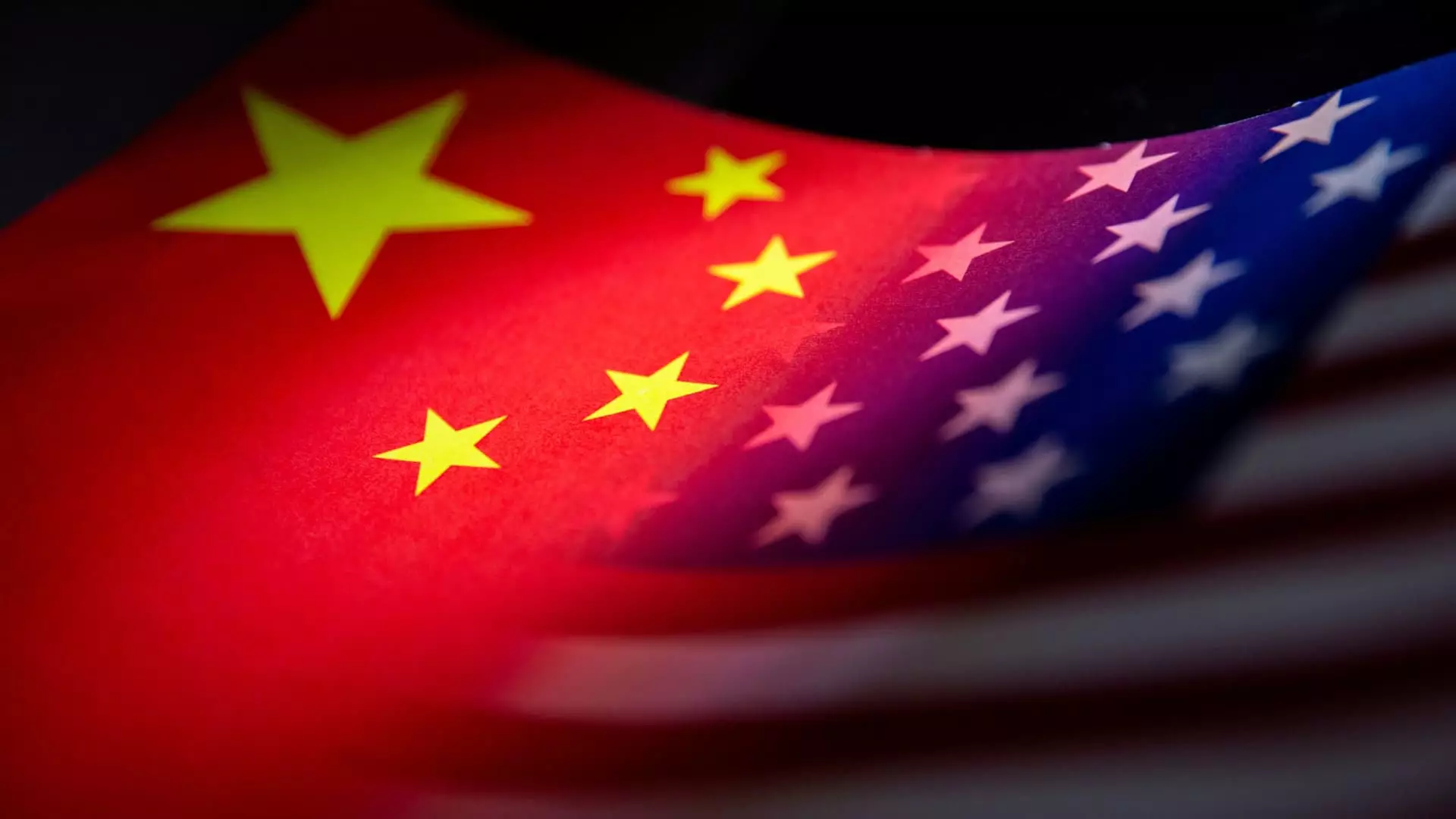China’s President Xi Jinping recently positioned himself as an advocate for global investment, urging multinational companies to partner with China in light of increasing trade tension with the U.S. While on the surface, this plea seems like a strategic and diplomatic maneuver aimed at fostering international collaboration, a closer inspection reveals nuanced implications that could undermine China’s long-term economic stability and global relations.
The Illusion of a Stable Investment Climate
Xi’s assertion that “to invest in China is to invest in tomorrow” raises eyebrows, especially given the backdrop of politicized trade relations. The promise of a “safe and stable” environment for foreign businesses contrasts starkly with the reality of a nation where economic decision-making is often intertwined with political directives. Companies aiming to navigate the choppy waters of Chinese bureaucracy may find themselves entangled in unpredictable regulatory frameworks or subject to sudden policy changes.
It’s worth questioning whether this investment push is genuinely about creating favorable conditions for international companies or more about sustaining a façade of economic stability amidst imminent pressures. The assertion of a level playing field for foreign firms in government procurement bids, while appealing, might be more of a smokescreen to maintain China’s image as a global business hub rather than a reality fully realized.
Multinational Companies as Tools of Diplomacy
Xi’s call for multinationals to “uphold global order” suggests an intent to co-opt these businesses as instruments of Chinese diplomacy. By intertwining corporate success with national interest, Xi is essentially asking global executives to carry the weight of China’s goals on their shoulders. This expectation can lead to a dangerous precedent where corporations may find themselves compromising their ethical stances or contributing to a state-defined narrative instead of pursuing profitability and innovation independently.
Such an alignment creates complexities for international businesses that may face backlash if their operations are perceived as supporting government agendas that conflict with foreign interests or values. In a landscape where companies must navigate raising consumer awareness regarding social responsibility, to be pawns in a geopolitical power game is not only deleterious to company integrity but could also create lasting divisions among stakeholders.
Trade Relations: A Fragile Balancing Act
Xi’s proposed strategy of resolving U.S.-China tensions through negotiation rather than confrontation is undoubtedly wise; however, it overlooks the fundamental power dynamics at play. With escalating tariffs and the imposition of export restrictions, particularly under U.S. scrutiny, any negotiated outcomes will be inherently lopsided. While Xi promotes the idea of collaboration, the harsh reality is that the U.S., positioning itself as a regulatory titan, has the upper hand when it comes to setting trade standards.
Furthermore, Xi’s focus on maintaining global supply chain stability resonates with many, but stability presupposes predictability—something that current trade policies lack. These negotiations can often be smoke and mirrors, obscuring the underlying issues that need addressing. The corporate sector, particularly in tech, has already felt the heat; added red tape does not necessarily equate to enhanced opportunities but could rather lead to stunted growth and innovation stifling.
The Role of International Executives in China’s Economic Future
The presence of prominent figures, like Ray Dalio and CEOs from major corporations, at the roundtable with Xi signifies an imposing leverage of goodwill, used as a tool for potential future partnerships. However, what constitutes an advantageous relationship for multinational companies remains jarring. Is the risk of placing too much trust in Xi’s vision worth it? Given the ever-evolving landscape of global politics, executives must tread carefully in interpreting these overtures from Beijing.
The stakes are high, and decisions made today will shape not only corporate trajectories but also the broader economic landscape. Xi’s pitch to foreign investors may sound enticing, yet buried beneath lies a web of complexities that could unravel as swiftly as they were woven.
China’s New Narrative: A Recipe for Disillusionment
In a world increasingly critical of unilateral governance and the opacity often associated with state-run enterprises, Xi’s push for foreign investment risks leaving a bitter aftertaste for those who seek authentic partnership based on shared values. The future economic narrative that emerges from this engagement will undeniably combine promising potential with inherent risks. The mirror of opportunity reflects both ambition and caution, and discerning the truth requires a keen eye for the intricacies of the evolving power play in this geopolitical arena.

